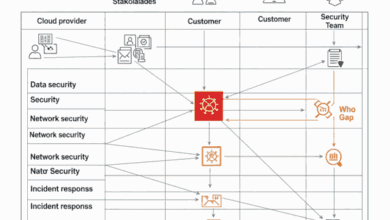Integrating Artificial Intelligence in Sales Strategies for Competitive Advantage

Artificial Intelligence (AI) stands out as the cornerstone of the modern digital sales revolution, with its immense potential to refine customer engagement and operational strategies. Establishing a robust sales platform starts with the savvy integration of AI in sales, where sophisticated data analysis coupled with predictive insights grants sales teams an unrivaled edge. In this digital transformation, sales processes are reimagined, leading to efficiency and productivity that empower businesses to exceed conventional performance benchmarks and forge meaningful connections with their customer base.
Predictive Analytics and Lead Prioritization
AI in sales transforms lead prioritization and sales forecasting through predictive analytics. By analyzing customer behavior, purchase history, and engagement patterns, AI provides powerful insights to score and prioritize leads accurately. This targeted approach allows sales professionals to focus their efforts where they’re most likely to yield positive outcomes, optimizing their time and increasing conversion chances. Predictive analytics streamline lead qualification, enabling sales teams to engage with prospects more effectively and allocate resources efficiently. With AI-driven insights guiding their actions, sales professionals can make informed decisions, identify high-value opportunities, and tailor their approach to individual customer needs. Embracing AI in sales empowers organizations to enhance sales efficiency, drive revenue growth, and stay competitive in today’s fast-paced market landscape.
Task Automation and Sales Efficiency
AI’s automation capabilities revolutionize the sales process, freeing sales staff from time-consuming tasks. By automating administrative functions such as scheduling and report generation, AI liberates sales professionals to prioritize relationship-building and strategic initiatives. This shift maximizes productivity, allowing sales teams to focus on activities that drive growth and long-term success. With AI handling repetitive tasks, sales staff can allocate their time more efficiently, nurturing client connections and identifying new opportunities. By streamlining workflows and eliminating manual processes, AI empowers sales professionals to operate at peak performance, delivering superior customer experiences and driving revenue growth. Embracing AI in sales automation enables organizations to optimize resource utilization, enhance productivity, and stay competitive in today’s dynamic market landscape.
Personalization and Customer Engagement
Personalization is a cornerstone of effective sales and marketing approaches, and AI plays a pivotal role in its facilitation. By scrutinizing customer behaviors and preferences, AI enables tailored interactions that resonate with individuals on a personal level. These bespoke experiences imbue customers with a sense of value and acknowledgment, fostering deeper engagement and heightened satisfaction. Consequently, this personalized approach has the potential to cultivate stronger brand loyalty as customers feel understood and appreciated. Through AI-driven personalization, businesses can forge stronger connections with their audience, driving increased engagement, customer satisfaction, and long-term brand advocacy. Embracing AI in personalization strategies empowers organizations to deliver exceptional experiences that differentiate them in the market and foster lasting relationships with their customers.
Customer Relationship Management Evolved
AI integration revolutionizes Customer Relationship Management (CRM) systems, elevating them beyond conventional functions. Transformed into intelligent platforms, CRMs store customer data and analyze it to forecast future behavior, suggest sales agents’ next steps, and optimize communication channels. This enhancement ensures every customer interaction is more effective and personalized. By leveraging AI-driven insights, businesses can anticipate customer needs, tailor engagement strategies, and foster deeper relationships. With AI-enabled CRMs, organizations gain a competitive edge by delivering exceptional experiences, driving customer satisfaction, and, ultimately, increasing revenue. Embracing AI integration in CRM systems empowers businesses to stay ahead of the curve, adapt to evolving customer demands, and thrive in today’s dynamic market landscape.
Dynamic Pricing Strategies
Companies must swiftly adjust their pricing strategies to stay competitive in dynamic markets. AI plays a crucial role in this process by analyzing real-time market variables. Businesses can implement dynamic pricing models that accurately reflect current market conditions by leveraging AI insights. These models enable companies to optimize profitability while maintaining market share. AI-driven pricing strategies empower organizations to respond rapidly to changes in demand, competition, and consumer behavior. By dynamically adjusting prices, businesses can capitalize on emerging opportunities, mitigate risks, and stay ahead of the competition. With AI’s ability to analyze vast amounts of data and predict market trends, companies can make informed pricing decisions that drive revenue growth and ensure long-term success in today’s fast-paced and ever-changing business landscape. Embracing AI in pricing strategies allows businesses to adapt quickly, maximize profitability, and thrive in competitive markets.
Inventory Management and Supply Chain Optimization
AI’s benefits extend beyond customer-facing areas to operational domains, particularly inventory management and supply chain logistics. By analyzing vast datasets, AI offers insights that enhance prediction accuracy and streamline stock management processes. This leads to cost reduction, waste minimization, and improved product availability, aligning with consumer demand patterns. AI-driven inventory management optimizes stock levels, ensuring businesses maintain adequate supplies while avoiding overstocking or stockouts. Additionally, AI enhances supply chain efficiency by identifying potential bottlenecks and optimizing transportation routes. This results in smoother operations, reduced lead times, and improved responsiveness to market demands. Embracing AI in operational processes enables businesses to achieve greater agility, resilience, and cost-effectiveness in managing inventory and logistics. By leveraging AI’s predictive capabilities, organizations can optimize resource allocation, minimize risks, and stay competitive in today’s rapidly evolving business landscape.
The Evolving Narrative of AI in Sales
As we consider the future of sales, AI’s impact is unmistakable. It offers businesses an onward path to innovation and strategic prowess. Companies that embrace AI technologies are setting benchmarks, reshaping the sales narrative, and defining the future of customer relations and sales effectiveness. AI in sales fosters a new generation of businesses that operate on intelligence, agility, and a deep understanding of customer needs and expectations.
Ultimately, by incorporating AI into sales strategies, businesses are unlocking new realms of potential. They’re crafting sales processes that are not only smarter and more efficient but also increasingly in tune with the digital evolution of the global market. AI in sales is not just a trend; it is the next chapter in the evolution of commerce, where technology and human ingenuity join forces to drive success in the digital age.




